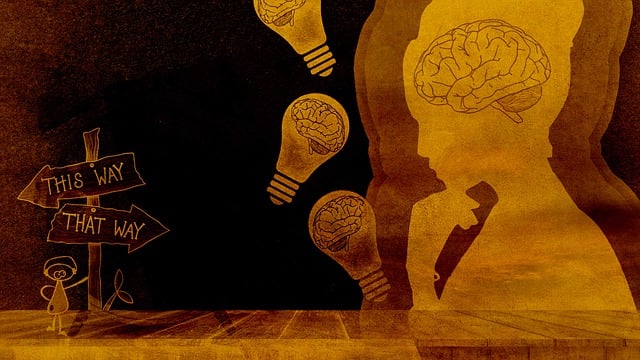Mental wellness groups offering Denver German Speaking Therapy provide a supportive environment for individuals within the German community to connect, heal, and grow. Trained facilitators create an inclusive space where members share experiences, build resilience, and learn coping strategies. This culturally sensitive approach, combining open discussions, mindfulness meditation, and social skills training, enhances mental wellness outcomes specifically tailored to German-speaking individuals' needs. Effective facilitation emphasizes active listening, clear boundaries, and community outreach, ensuring a safe haven for honest expression and improved emotional well-being. Success is measured through evaluation tools and participant journals, guiding continuous improvement in Denver German Speaking Therapy programs.
“Mental wellness group facilitation plays a pivotal role in enhancing collective well-being. This article explores effective techniques for facilitators, drawing insights from Denver German Speaking Therapy’s cultural sensitivity approach. We delve into strategies for fostering connection, establishing safe spaces, and measuring success. By understanding the fundamentals and employing engaging methods, facilitators can create supportive environments that drive positive outcomes. Learn how these practices, inspired by innovative therapies, contribute to effective mental wellness group management.”
- Understanding Mental Wellness Groups: A Foundation for Effective Facilitation
- Denver German Speaking Therapy: Cultural Sensitivity in Group Settings
- Engaging Facilitation Techniques to Foster Connection and Support
- Creating a Safe Space: Establishing Boundaries and Rules for Group Dynamics
- Measuring Success: Evaluation and Improvement Strategies for Mental Wellness Groups
Understanding Mental Wellness Groups: A Foundation for Effective Facilitation

Mental wellness groups provide a unique and supportive environment where individuals with shared experiences can connect, heal, and grow together. These groups serve as a powerful tool for fostering mental wellness in communities, offering an alternative to traditional therapy settings. Understanding the dynamics of such groups is essential for facilitators, especially those providing Denver German Speaking Therapy. Group members come from diverse backgrounds, each bringing their own stories and struggles, which creates a complex yet rich tapestry of emotions and perspectives.
Effective facilitation involves creating a safe space where everyone feels heard, respected, and valued. Facilitators play a crucial role in guiding the group through conversations, encouraging participation, and fostering compassion cultivation practices. They must also be adept at managing risks, conducting thorough risk assessments for mental health professionals, and ensuring the well-being of every participant. By creating a supportive atmosphere, facilitators enable members to build resilience, share coping strategies, and develop meaningful relationships, ultimately enhancing their mental wellness journey.
Denver German Speaking Therapy: Cultural Sensitivity in Group Settings

In Denver, German-speaking therapy groups offer a unique and culturally sensitive approach to mental wellness support. These specialized programs cater to individuals within the German community who may face language barriers or seek services in their native tongue. Facilitated by trained healthcare providers with cultural competency training, these group settings foster a sense of belonging and understanding. Members can openly discuss personal challenges, share experiences, and build supportive connections while navigating therapy in their comfort zone.
The integration of social skills training and mindfulness meditation within these groups further enhances the therapeutic process. By combining linguistic expertise with evidence-based practices, Denver German Speaking Therapy ensures individuals receive comprehensive care tailored to their cultural and linguistic needs. This personalized approach promotes effective healing, encourages participation, and ultimately contributes to improved mental wellness outcomes.
Engaging Facilitation Techniques to Foster Connection and Support

Effective group facilitation is key to creating a supportive and engaging environment for mental wellness discussions, especially in a diverse community like Denver. For German-speaking individuals seeking therapy, facilitators can employ unique techniques to foster connection and promote healing. One powerful method is incorporating cultural elements into sessions, allowing participants to share experiences and perspectives relevant to their heritage. This approach not only enhances understanding but also builds a sense of belonging within the group.
Additionally, facilitators should focus on active listening and open communication to boost confidence and self-esteem. Encouraging honest conversations and providing a safe space for expression can significantly impact an individual’s mental wellness journey. The implementation of community outreach programs centered around these themes can further strengthen support networks, ensuring that those in need have access to tailored resources and a sense of community, ultimately enhancing the overall effectiveness of German-speaking therapy initiatives in Denver.
Creating a Safe Space: Establishing Boundaries and Rules for Group Dynamics

Creating a safe space is paramount when facilitating mental wellness groups. This involves establishing clear boundaries and rules to foster an environment where every participant feels secure and respected. As a facilitator, it’s crucial to set expectations early on, ensuring everyone understands the ground rules for group dynamics in Denver German-speaking therapy settings. This includes guidelines on confidentiality, active listening, and respectful communication, which serve as the foundation for meaningful interactions.
By establishing these boundaries, facilitators can help mitigate potential issues, such as personal attacks or off-topic discussions, allowing the group to focus on shared goals like anxiety relief and improving communication strategies. Moreover, incorporating mindfulness meditation practices within this structured framework can enhance participants’ sense of calm and presence in the group, ultimately enriching their therapeutic journey.
Measuring Success: Evaluation and Improvement Strategies for Mental Wellness Groups

Measuring success is a vital aspect of facilitating effective mental wellness groups. Evaluation strategies play a crucial role in understanding the impact and progress of the group sessions. Facilitators can gather valuable insights through various methods, such as pre-post surveys, participant feedback forms, or even qualitative interviews. These tools allow individuals to reflect on their emotional regulation skills, inner strength development, and overall well-being before and after the program. By comparing results, facilitators in Denver German-speaking therapy settings can identify areas of improvement and tailor their approach accordingly.
Additionally, maintaining a Mental Wellness Journaling Exercise Guidance can offer further insights. Encouraging participants to document their experiences, challenges, and achievements provides a rich source of data. This practice enables individuals to track their personal growth and offers facilitators an opportunity to assess the group’s collective progress. Regular reviews of these journals can guide improvements in the facilitation process, ensuring that the group continues to meet its objectives and positively impact the lives of those seeking support in Denver German-speaking therapy circles.
Mental wellness group facilitation is an art that combines empathy, cultural sensitivity, and engaging techniques. As highlighted by Denver German Speaking Therapy, understanding cultural nuances is vital for creating inclusive environments. By implementing effective strategies such as establishing safe spaces and clear boundaries, facilitators can foster meaningful connections and support among group members. Regular evaluation and improvement processes ensure these groups remain dynamic and beneficial, ultimately enhancing mental wellness outcomes for all participants.














